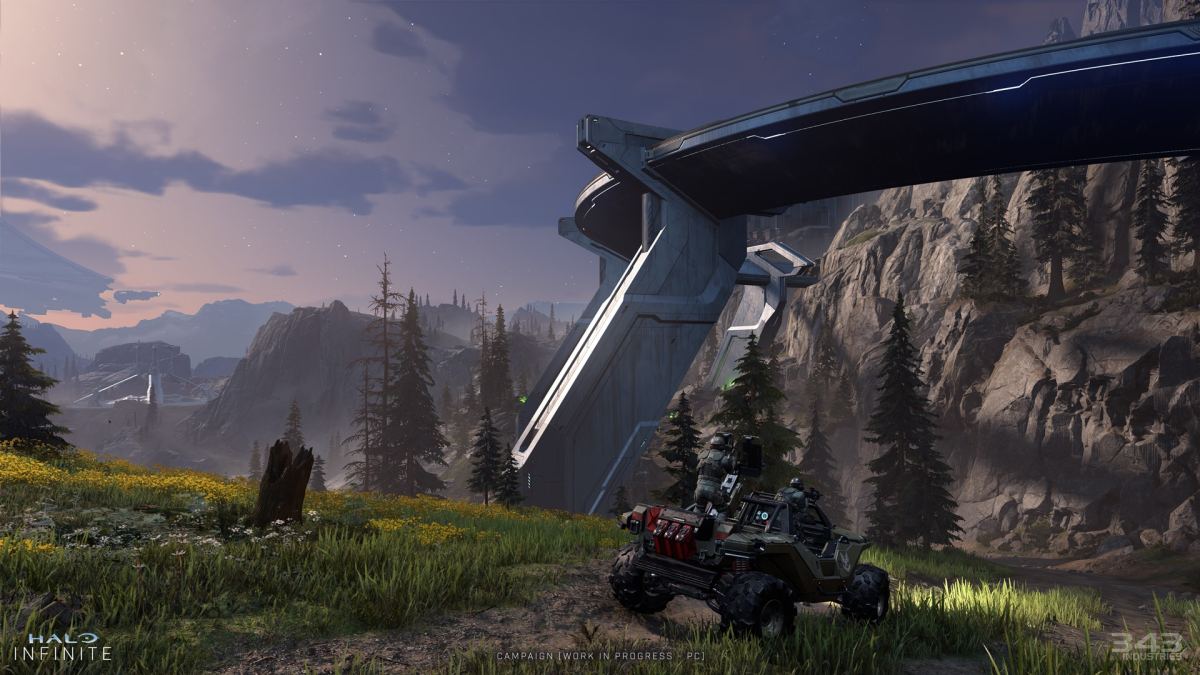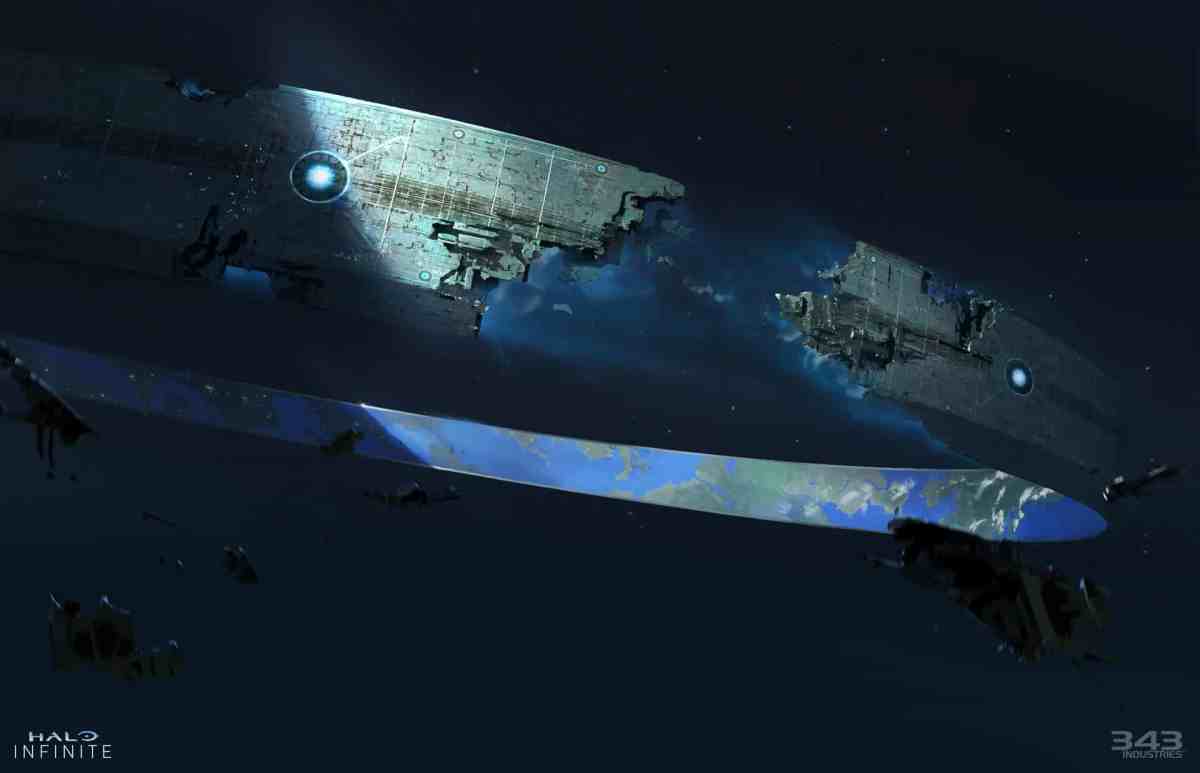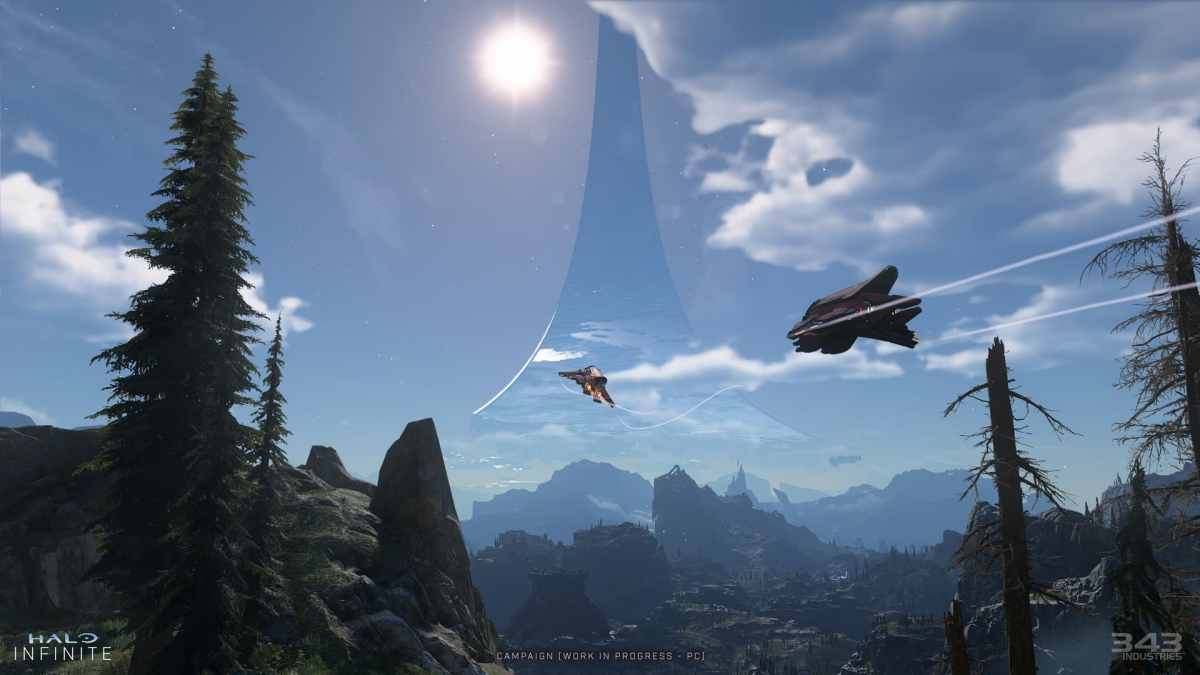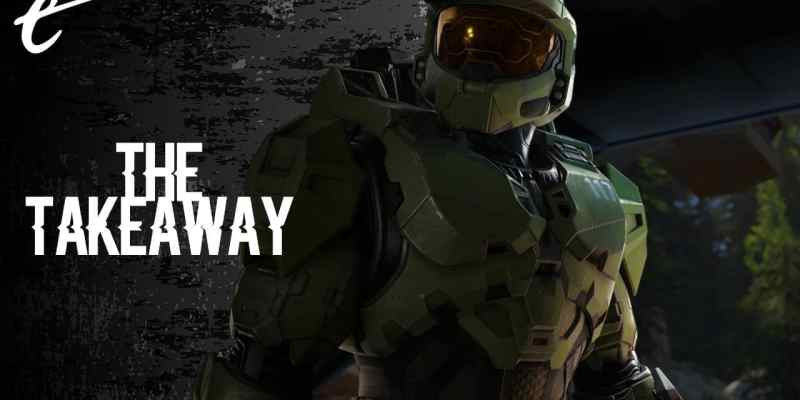Like most of us, Halo Infinite has had a strange year. Over the past 12 months, the game has gone from being a hugely anticipated launch pillar for the Xbox Series X, to having an underwhelming gameplay reveal, to being delayed an entire year, complete with some significant turnover at the studio. But despite all of this, there’s been a general optimism exuding from the game over the past few months, in large part due to how refreshingly transparent Xbox and developer 343 Industries have been in regards to the game’s past stumbles, its current progress, and its promising future.
Taking a trip back to the spring and summer of 2020, we got a handful of digital events slowly unveiling features of the Xbox Series X. And then in July, the long awaited gameplay reveal of Halo Infinite finally happened. This was its big moment. The cross-generational sequel was going back to the series’s roots. It was hitting alongside the launch of the new hardware in November and would bring the franchise back to the shooter prominence of its glory days.
But then the world saw the game in action, and everything changed. While the demo showcased what was obviously real gameplay that hearkened back in all respects to the original Halo: Combat Evolved, the visuals were certainly lacking, none of it screamed “next-gen,” and much of the conversation unfortunately revolved around a Brute named Craig.
Shortly after the demo came a pair of major announcements regarding Master Chief’s latest adventure. First was that the game’s iconic multiplayer would be going free to play for the first time in series history. The second and much bigger announcement was that Halo Infinite would be delayed to 2021. The delay put the Xbox Series X launch in a tough spot in not having a single marquee game to hang its hat on.

The back half of 2020 felt like Xbox and 343 Industries were resetting a broken bone. In August, the team brought on Bungie veteran Joseph Staten to help oversee the project. Shortly after that, the game’s director and 343 Industries Partner Studio Head Chris Lee stepped down from his role, signaling a pretty sizable shift for the game going into 2021.
This felt like a pivotal crossroads for the game. Down one path, 343 could have decided to go radio silent — put their collective heads down and focus 100% on making the best Halo game possible. There are plenty of games that go AWOL for a significant amount like this. Nintendo’s been ghostly silent on Metroid Prime 4, Bayonetta 3, and the sequel to Breath of the Wild, with the last of which getting a brief update in the most recent Nintendo Direct only to say that we’d hear more about it later in the year. Likewise, aside from the recent leaks, FromSoftware has been silent on Elden Ring since debuting the game several years ago.
But down that path, the entire messaging of Halo would’ve been left to speculative YouTube videos with thumbnails containing Impact font, flame emojis, several punctuation marks, and a man making some kind of exaggerated face who claims to know exactly what goes into creating a AAA video game during a global pandemic in 2021. No matter what was actually happening inside the walls of 343i — well, this year, I guess the individual homes and apartments of the team — the outside narrative would be that the game was on fire.
One need only look at how these knee-jerk reactions took to something like the impossibly stupid Puddlegate prior to the launch of Marvel’s Spider-Man on PlayStation 4 back in 2018 to see how quickly these kinds of things can get out of control. At least in that case, the manufactured controversy didn’t hurt the game in the long run, as it sold over 20 million copies as of November 2020, with its follow-up, Spider-Man: Miles Morales, moving over 4 million units in just a few months.

But radio silence wasn’t the path that Halo Infinite went down. Instead, beginning at the end of 2020, we started to see a steady flow of honesty and transparency from the team that is rarely seen in projects of this size and scope. And it’s something that other developers could take notes from.
In December, we got our first piece of this in a lengthy “Inside Infinite” blog post, including updates on the game’s art, graphics, and live customization, as well as a (re)introduction by Joseph Staten. And this communication pressed on into the new year. The January installment of Inside Infinite clarified the mission statement of the posts, saying, “Our goal with these blogs is to provide insights into the game we are making from the people who are making it.” The rest of the post focused on weapons, vehicles, abilities, and the general way in which players will be interacting with the world, including interviews with various members of the team.
The most recent update at the end of February focused on the setting of Zeta Halo itself, including how the team is going to merge the classic Golden Triangle of gameplay with a more open world, as well as an emphasis on how much better the whole thing is looking now than when we last saw it over the summer. This included a screenshot that’s arguably the most impressive thing we’ve seen from the game yet.
There’s something refreshing about how open and forthcoming 343i has been in recent months regarding the ongoing development of Halo Infinite. Yes, obviously, the Inside Infinite series isn’t documentary filmmaking; it’s still marketing. But even so, it’s a look at how the sausage is made from one of the biggest developers on the planet. And if it helps educate one single person on how complicated video game development is and that there are passionate human beings who always want to make the best thing possible behind every single game, then it’s worth it. And while it’s certainly not something that every developer has the luxury of doing, some games could certainly take a few pointers.

How a game is received at launch, and how the developer communicates with the audience at large, is absolutely crucial to the health of its future. We’re currently witnessing that struggle now with a handful of high-profile games from the past few months. Marvel’s Avengers’ launch was rocky to say the least, and the slow trickle of new characters and stories hasn’t fully turned the ship around yet leading up to the new-gen update a few weeks from now. Likewise, Cyberpunk 2077’s rough December has only gotten worse, with the game’s entire roadmap being pushed after a massive ransomware hack of CD Projekt Red.
For every awesome comeback story like Final Fantasy XIV, Diablo III, or No Man’s Sky, we get news that BioWare is sunsetting Anthem and moving on. Now, I’m certainly not trying to compare Halo Infinite to any of the aforementioned games, positively or negatively. I’m just saying that messaging is crucial in the games industry, and the decision to delay Infinite a full year, coupled with being open about what’s going on during that time, is absolutely a good move on the part of Xbox and 343 Industries.
While Halo Infinite’s transparency may be rare in the AAA space, we’ve certainly had this kind of access from plenty of indie games in the past. A notable recent example is Supergiant Games’ Hades, which saw the team constantly communicating with fans and updating the project throughout its early access period on Steam for the better part of a year before finally releasing the proper game last September to near-unanimous praise.
After a pretty bleak 2020, the future’s looking brighter for Master Chief. Halo Infinite will be here by the end of 2021, and the long-awaiting Halo television series is hitting Paramount+ in 2022. And thanks in part to Inside Infinite, Xbox and 343 Industries are making sure that the roadmap towards Halo Infinite’s launch is relayed through clear communication — and not silent cartography.
